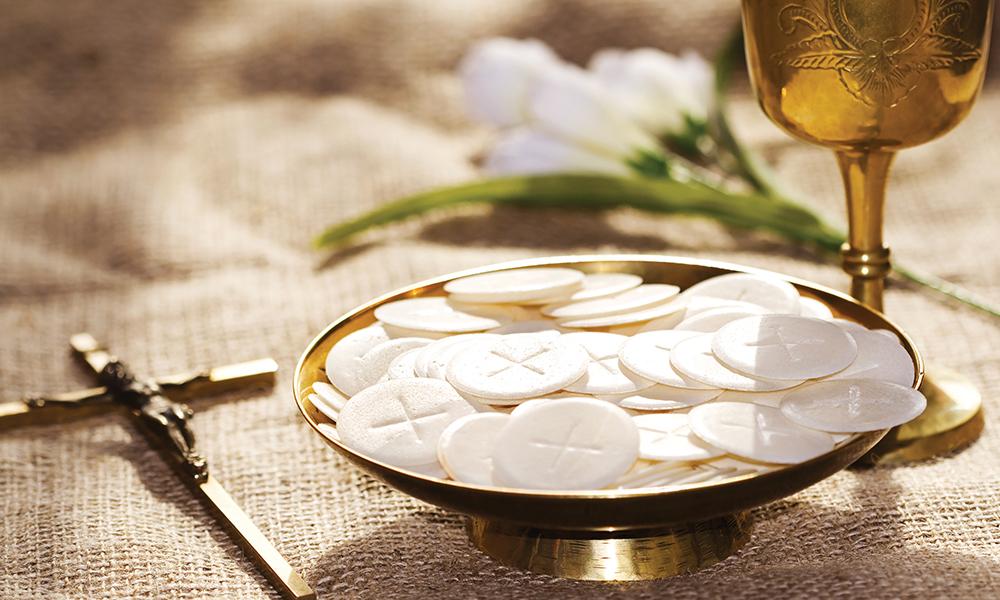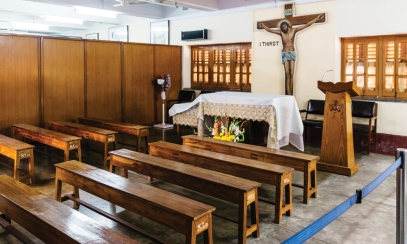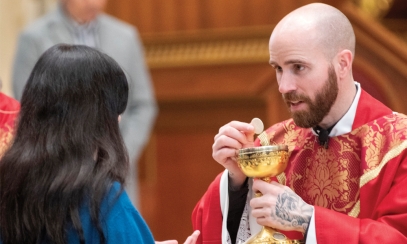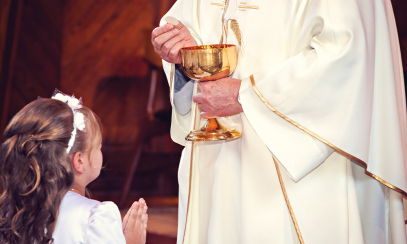
Receiving Communion is a sign of unity among Catholics
Question: Why can't non-Catholic Christians ordinarily receive Holy Communion during or outside of Mass?
Question: Why can't non-Catholic Christians ordinarily receive Holy Communion during or outside of Mass?
Answer: St. Augustine exclaimed: “O sacrament of devotion! O sign of unity! O bond of charity!” (CCC 1398). Because the Eucharist is the visible sign par excellence of unity among the faithful, it would be – in a sense – “living a lie” if the Catholic Church widely offered Holy Communion to Christians who are not actually in communion with the Church, with Catholic teachings, and with the pope.
Answer: St. Augustine exclaimed: “O sacrament of devotion! O sign of unity! O bond of charity!” (CCC 1398). Because the Eucharist is the visible sign par excellence of unity among the faithful, it would be – in a sense – “living a lie” if the Catholic Church widely offered Holy Communion to Christians who are not actually in communion with the Church, with Catholic teachings, and with the pope.
The Catholic Church’s approach comes down to a desire for integrity and truthfulness. Holy Communion should always indicate a true unity – a true “holy communion” – among those receiving the Eucharist. Therefore, the reason the Catholic Church does not ordinarily invite non-Catholic Christians to receive Holy Communion is so that they do not “speak” an untruth through their actions. The reception of Holy Communion is meant to indicate a full “common-union” of the faithful. Sadly, non-Catholic sisters and brothers are not yet in full union with us.
In rare circumstances, though, exceptions can be made for non-Catholics to receive some of our sacraments, especially members of Eastern Churches, such as the Orthodox Church, which possess the true priesthood and valid sacraments. For Protestant Christians who wish to receive Holy Communion, Anointing of the Sick or the sacrament of Penance, the bar is quite high though – as Canon Law specifies in 844 §4:
If the danger of death is present or if, in the judgment of the diocesan bishop or conference of bishops, some other grave necessity urges it, Catholic ministers administer these same sacraments licitly also to other Christians not having full communion with the Catholic Church, who cannot approach a minister of their own community and who seek such on their own accord, provided that they manifest Catholic faith in respect to these sacraments and are properly disposed.
The Church reminds us that the current lack of unity among Christians is certainly a call to prayer. “The more painful the experience of the divisions in the Church which break the common participation in the table of the Lord, the more urgent are our prayers to the Lord that the time of complete unity among all who believe in him may return” (CCC 1398).
For additional reading: The Catechism of the Catholic Church (CCC 1398-1401)



